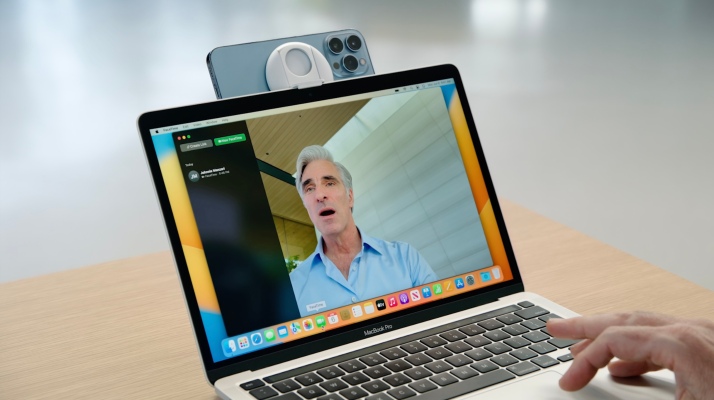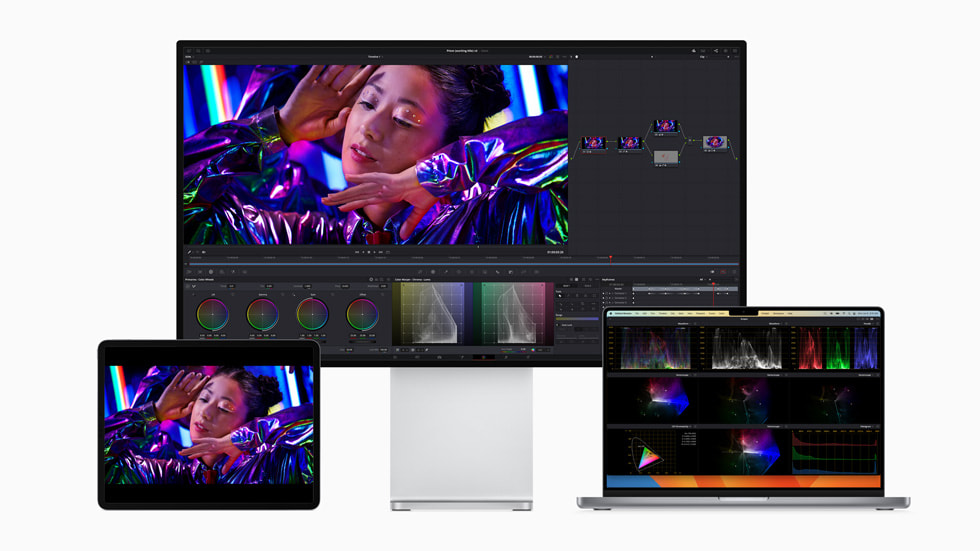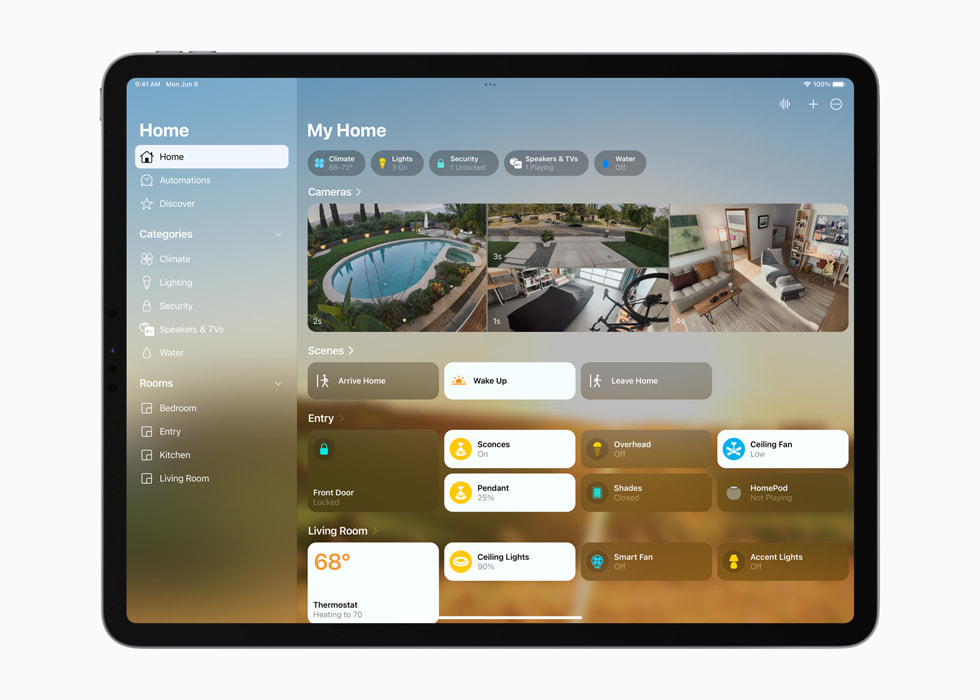
Apple’s Continuity Camera lets you use your iPhone as a webcam
June 9, 2022
Tesla accuses civil rights agency of unlawfully suing for racial discrimination
June 10, 2022
Today at its Worldwide Developers Conference (WWDC), Apple unveiled a slew of upgrades headed to iPad devices in iPadOS 16, the latest version of the company’s tablet-focused operating system. A redesigned multitasking interface — dubbed Stage Manager — makes it simpler to see which apps are open and switch between tasks, while new tools offer ways for users to juggle up to eight apps at once and resize windows.
Previously, iPadOS could only run two resizable apps side by side (Split View) and bring a minimized third app above them in a capability called Slide Over. Improvements arrived in iPadOS 15 last year, simplifying the process of dragging and dropping text, images, links and files from one app to another. But the workflow remained somewhat clumsy — even with the addition of a multitasking toolbar.
Stage Manager automatically organizes apps and windows, allowing users to drag and drop windows from the side or open apps from the Dock to create groups of apps. The window of the app users are working on is displayed in the center, and other open apps and windows are arranged on the left-hand side in order of recency.

Image Credits: Apple
Elsewhere, iPadOS 16 features the same redesigned app icons found in the upcoming iOS 16, which in turn take inspiration from the icons in macOS Monterey. Notifications have been revamped. And most of the highlights announced for iOS 16, including refreshed Messages and Health apps, are present and accounted for.
One rumor ahead of WWDC suggested that iPadOS 16 would introduce the ability to run Mac M1-native apps, including Final Cut Pro and Logic Pro, on M1 iPads like the iPad Pro and iPad Air. Another hinted that iPadOS would gain a “floating app window” interface — also exclusive to M1 iPads — that would launch automatically when a keyboard and trackpad are detected. That turned out to be partially true: Some multitasking features require the M1, according to Apple, like overlapping windows and full external display support (up to 6K).
Multiple sources reported that interactive widgets were coming to the iPad, which would expose shortcuts like media controls and the flashlight toggle on the lock screen. This seemed like a shoe-in, given that iOS 16 — the operating system on which iPadOS is based — also introduced widgets. And indeed, bits and pieces materialized at WWDC during the keynote address.

Image Credits: Apple
On the lock screen, iPadOS 16 lets you change the clock font and wallpaper. There are “live” widgets that show, for example, lightning strikes when it’s raining and music when it’s playing the background. (A new software development kit called WidgetKit allows developers to create custom widgets.) Notifications roll in from the bottom of the lock screen as they arrive — there’s a new notification style called Live Activities for live events like workouts and sports scores. Lastly, Focus modes now extend to the lock screen so that users can match the lock screen wallpaper and widgets to their focus mode.
Other highlights in iPadOS 16 include:
- Apps can address up to 16 GB of memory, via Virtual Memory Swap.
- Display Zoom on M1 iPads allows users to increase the pixel density of the display.
- A new reference color mode is available for photo and video workflows, only on the 12.9-inch iPad Pro.
- A Weather app, plus an API for weather data.
- New features in Messages to manage shared content across Files, Keynote, Numbers, Pages, Notes, Reminders and Safari as well as third-party apps.
- Support for passkeys, Apple’s sign-in method designed to replace passwords on the web and in apps.
- A more consistent undo and redo experience across the system, a redesigned find-and-replace experience and customizable toolbars.
- Hover Text, which helps users to more easily read input fields, menu items, and button labels.
From floating windows to bolstered multitasking, iPadOS is increasingly aligning in design with macOS. The reverse is true, as well — in 2020, macOS inherited Control Center from iOS and iPadOS, which contains toggles for system-level features. Universal Control landed last year, letting users share a single keyboard and mouse between Mac and iPad.
As in years past, Apple will release the latest version of iPadOS in public beta a few months ahead of widespread availability. The company said that builds will become available a few weeks from now, in July, alongside the third developer beta. The iPad (5th generation and later), iPad mini (5th generation and later), iPad Air (3rd generation and later) and all iPad Pro models are supported.




